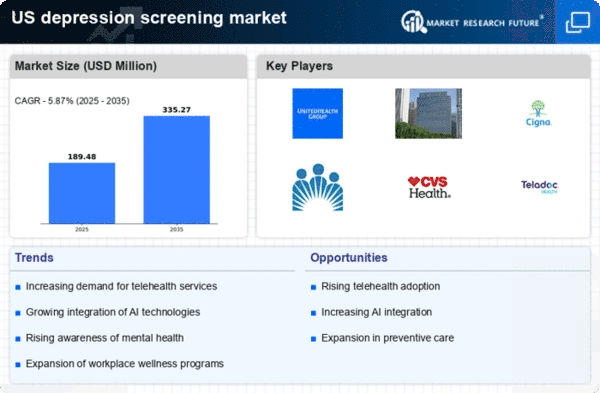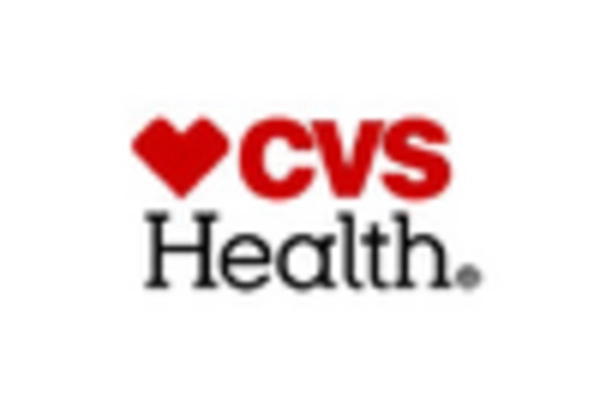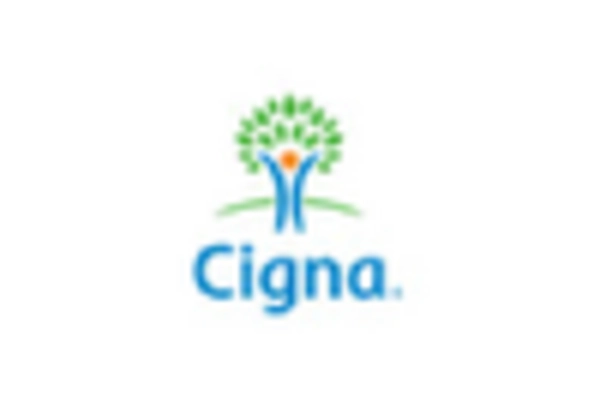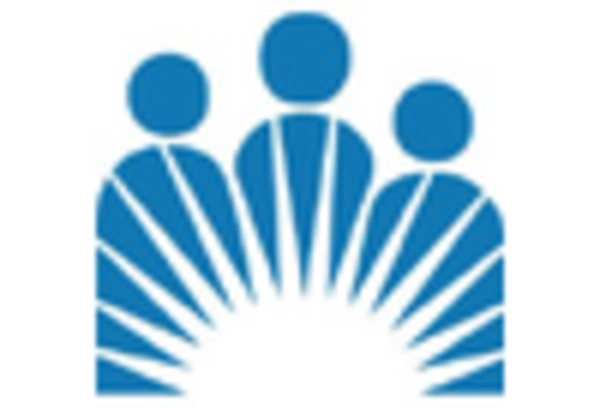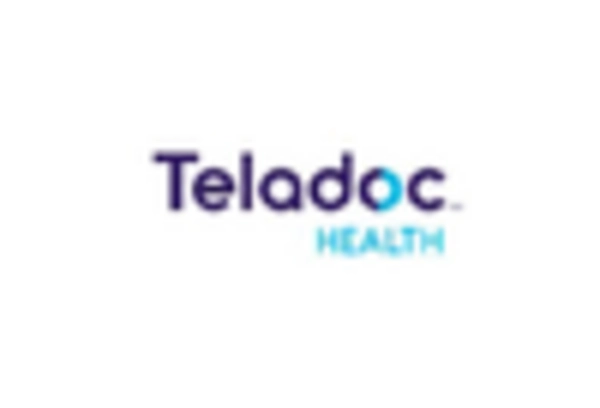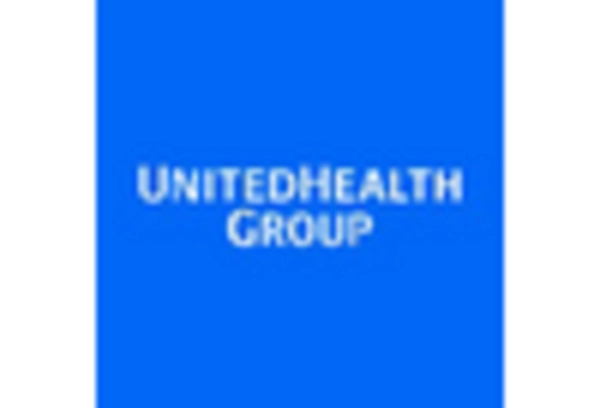Policy and Regulatory Support
Government policies and regulations play a pivotal role in shaping the depression screening-mental-health market. Recent legislative efforts have focused on enhancing mental health services, including the integration of depression screening into primary care settings. The Mental Health Parity and Addiction Equity Act mandates that mental health services be covered by insurance plans, which may lead to increased access to screening. Furthermore, the Centers for Medicare & Medicaid Services have introduced reimbursement codes for depression screening, incentivizing healthcare providers to adopt these practices. This regulatory support is expected to drive market growth, as more individuals gain access to necessary screening services, ultimately improving mental health outcomes across the population.
Rising Prevalence of Depression
The increasing prevalence of depression in the US is a critical driver for the depression screening market. Recent studies indicate that approximately 8.4% of adults experience major depressive episodes annually. This rising trend necessitates effective screening methods to identify individuals in need of mental health support. As awareness grows, healthcare providers are more likely to implement standardized screening protocols, thereby expanding the market. The National Institute of Mental Health reports that untreated depression can lead to significant economic burdens, estimated at over $210 billion annually in lost productivity and healthcare costs. Consequently, the demand for effective screening tools and interventions is likely to increase, propelling growth in the depression screening-mental-health market.
Increased Collaboration Among Stakeholders
Collaboration among various stakeholders, including healthcare providers, insurers, and community organizations, is driving the depression screening-mental-health market. This collaborative approach aims to create comprehensive mental health care systems that prioritize early detection and intervention. Partnerships between public health agencies and private organizations are facilitating the development of community-based screening programs, which are essential for reaching underserved populations. The Substance Abuse and Mental Health Services Administration emphasizes the importance of such collaborations in improving access to mental health services. As these partnerships expand, the market is likely to benefit from increased awareness, resources, and support for depression screening initiatives.
Growing Focus on Mental Health in Education
The emphasis on mental health within educational institutions is emerging as a significant driver for the depression screening-mental-health market. Schools and universities are increasingly recognizing the importance of mental health support for students. Initiatives aimed at implementing mental health screenings in educational settings are becoming more common, with many institutions adopting programs to identify and assist students experiencing depression. The National Alliance on Mental Illness reports that 1 in 5 youth experience a mental health condition, highlighting the need for early intervention. By integrating screening into educational frameworks, the market is likely to see growth as more young individuals receive the necessary support and resources to address their mental health needs.
Technological Advancements in Screening Tools
Technological advancements are transforming the landscape of the depression screening-mental-health market. Innovations such as digital screening tools, mobile applications, and telehealth services are making it easier for individuals to access mental health assessments. For instance, the use of artificial intelligence in developing predictive algorithms for depression screening is gaining traction. These tools can analyze patient data more efficiently, leading to quicker and more accurate diagnoses. The integration of technology not only enhances the screening process but also encourages individuals to seek help, thereby expanding the market. As the demand for convenient and accessible mental health solutions grows, the adoption of these advanced screening tools is likely to increase.


